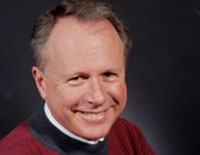Our Middle Name: People of Wondrous Ability
Editor’s note: This essay is the first in a series of writings in Scene from various authors on Lutheran outreach in the world, and the impact and meaning of a Lutheran higher education.
In 1524, monasteries across Germany had closed, their property confiscated by greedy rulers. And with this, education of the young was abandoned.
In desperation, Martin Luther wrote a heartfelt letter to German councilmen—“We are such blockheads and beasts when we dare to ask, ‘Why should we have schools?’”—imploring them to establish Christian schools and to use municipal taxes to maintain them and pay their teachers (does that arrangement ring a bell?).

Building on that centuries-old premise, the PLU Faculty Assembly added these words to the faculty handbook in fall 2011: “The individual faculty member upon appointment becomes a member of a community of scholars who respect and uphold the principles of Lutheran Higher Education.”
One faculty member asked the assembly a simple but necessary question: “What might be these principles?”
Part of the answer can be found in a new document recently prepared by PLU faculty and administrators: Core Elements in Lutheran Higher Education. Drawing on the legacy of Lutheran educational reform begun in the 16th century, Core Elements points to seven elements or principles alive in the education of students at PLU:
- Questioning of current knowledge and values;
- Freedom for expression and protection of learning;
- A liberating foundation in the liberal arts;
- Learning and research within community;
- The intrinsic value of the whole creation;
- Discerning one’s vocations in the world; and
- Service to the advancement of life, health and wholeness.
Flowing from the creation of Core Elements, in July PLU and the ELCA Office for Colleges and Universities sponsored the first-ever conference on introducing faculty and staff to the intellectually robust and world-engaged tradition of Lutheran higher education. It was a wonderful success, as many representatives from the 26 ELCA colleges gathered here in exploration.
Hosted by PLU and Lutheran Studies, participants heard presentations by Associate Professor Marit Trelstad (PLU Religion), the Rev. Dennis Sepper (PLU University Congregation), Bobbi Hughes (then with PLU Career Connections) and Professor Lynn Hunnicutt (PLU Economics and Wild Hope Center for Vocation).
And afterward, they asked the most satisfying of questions: “Could we do this again?”


